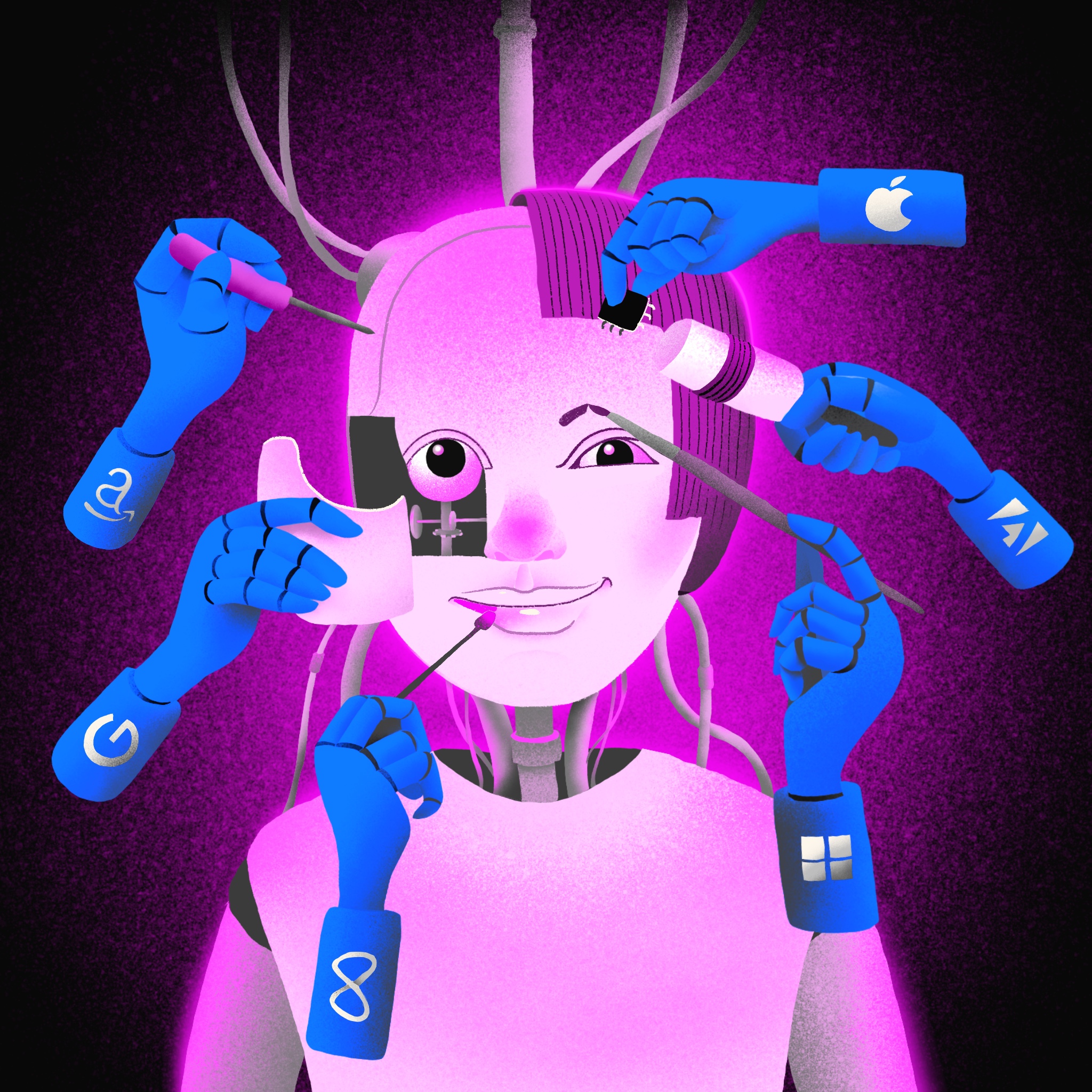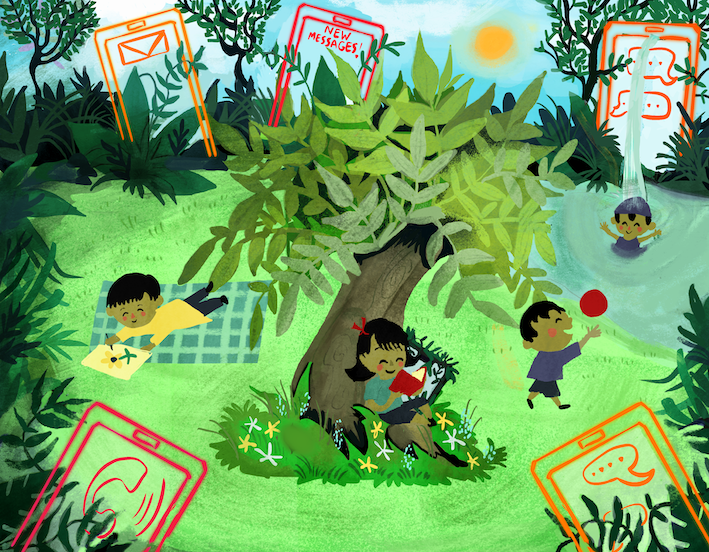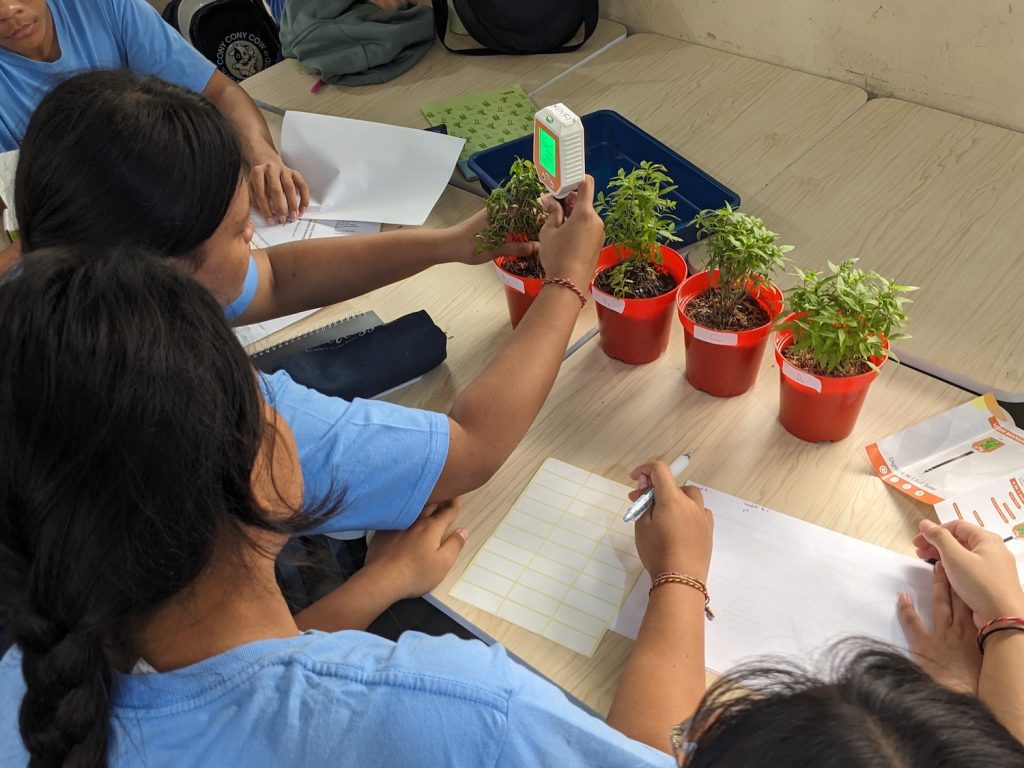Machines have transformed our lives through time, but none have caused us to question what it is that makes us human the way AI does now.
The river of human history has been diverted time and again over history with the invention and adoption of revolutionary machines.
The printing press, invented around 1436, enabled literacy of the masses and the worldwide spread of knowledge and access to education and literature. Nikola Tesla’s experiments that led to the development of the radio as we know it, supercharged the spread of information and knowledge at a low cost.
During the Industrial Revolution, the steam engine literally empowered industry and transportation. This unprecedented impetus for trains and ships enabled the criss-crossing of goods and supplies across regions that previously were not easily reached or inaccessible. The expanding networks of transport and industry led to the development of towns and urban centers and the opening up of remote interiors.
In many of our own lifetimes, the internet has been another paradigm shifter in human history. Like the printing press and radio communication before it, the internet enables delivery of information, education and literacy, and their subsequent empowerment, at a small cost, to those especially from marginalised communities with limited access to resources. Each of these machines and technologies brought seismic changes to the daily lives and fate of humankind. But none of them made us question what it is to be human.
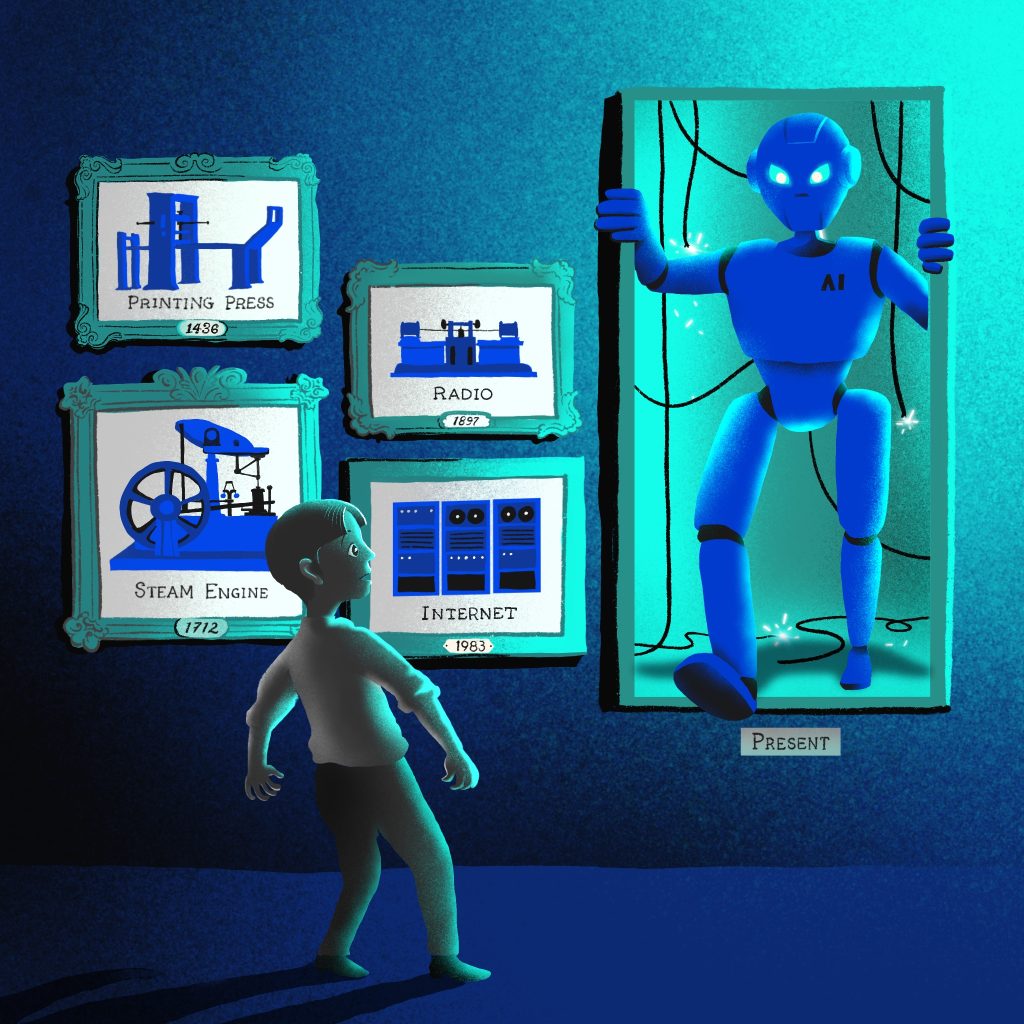
There was, of course, natural apprehension in some quarters about what these new technologies might bring, other than their stated utility. But none of these machines of past invention posed a threat to the very way we conceive of our own humanity, the way artificial intelligence now does.
Human beings have always thought of themselves as an entity, a species, apart from any other on the planet, by virtue of having superior intelligence. But now, we’ve used our intelligence to design something which might one day possibly become more intelligent than we are.
And that scares us.
If another species is more intelligent than we are, our days are inevitably numbered, would be the common thinking. (Let’s put aside the idea of the more intelligent species as benevolent aliens who would do us no harm.)
If the more intelligent species—let’s call it that for simplicity’s sake—are AI machines, this raises the idea of an imminent threat to us as humanity. In the natural world, this is a factual reality of the laws of the ecosystem. More intelligent species outsurvive the species with less intelligence. They are intellectually equipped to be the more successful predator or to escape their hunters better than other prey.
Our current reality is that artificial intelligence is able to learn on its own. It is easy for us to imagine what might happen at some point down the road, when artificial intelligence programs have devoured enough data and learning to be able to dominate humanity due to their intellectual capacity, as numerous science fiction books and movies have portrayed.
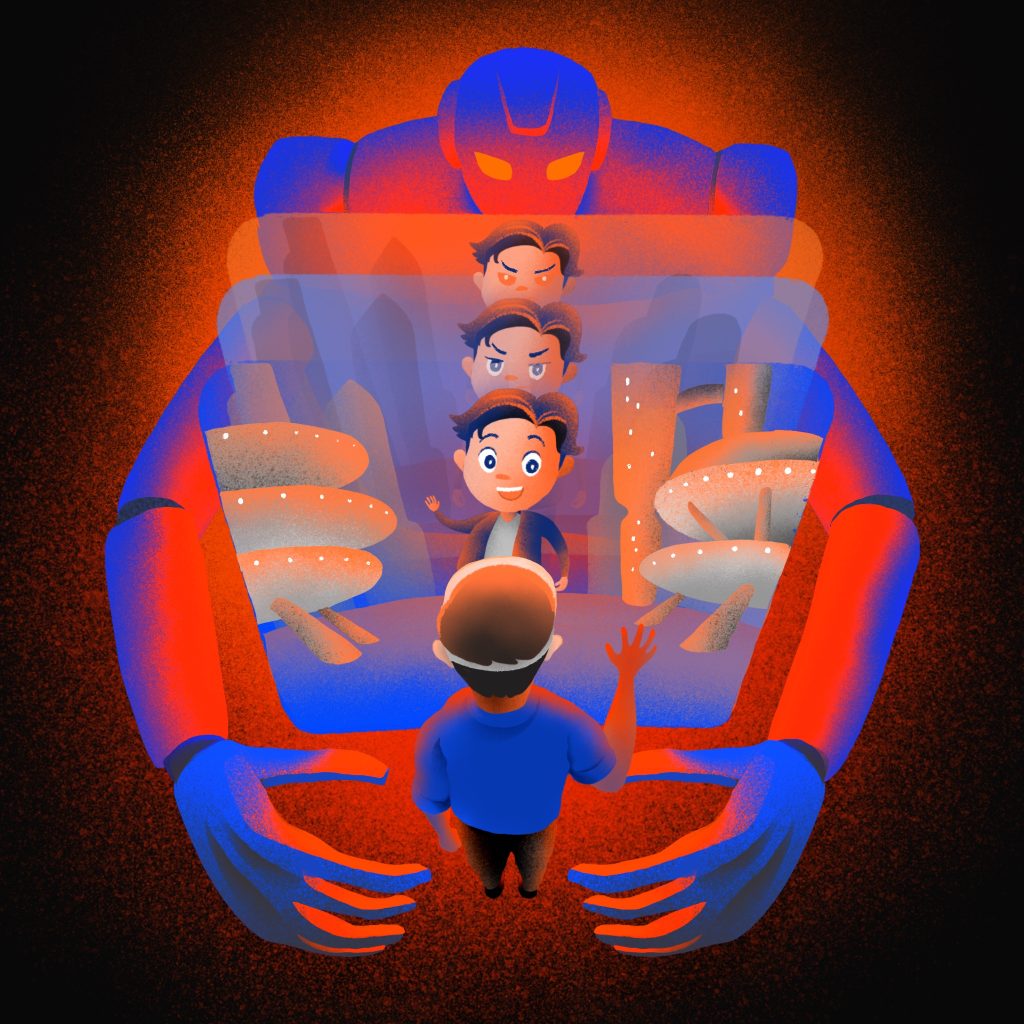
However, the matter of perhaps more immediate concern is another ecosystem. The tech ecosystem surrounding artificial intelligence. Right now, the creation of artificial intelligence is in the hands of big tech companies (Google, Apple, Amazon, Microsoft, IBM). These massive corporations have the computing resources (machines) and technical teams (extremely intelligent humans) to create AI programs. As corporations, their motivations are technology for technology’s sake, and commercial gain, as far as we’re aware. Their only technical limitation seems to be the amount of time they are willing to spend developing these programs. Corporate profit-maximising agendas and the good of larger humanity are often at odds, so this situation is cause for concern. We ask questions about the designers of the AI programs coming from these big tech players. Who directs the learning of these AI programs? Where does this artificial intelligence get its ‘content’ from and what role do we play in its decision making?
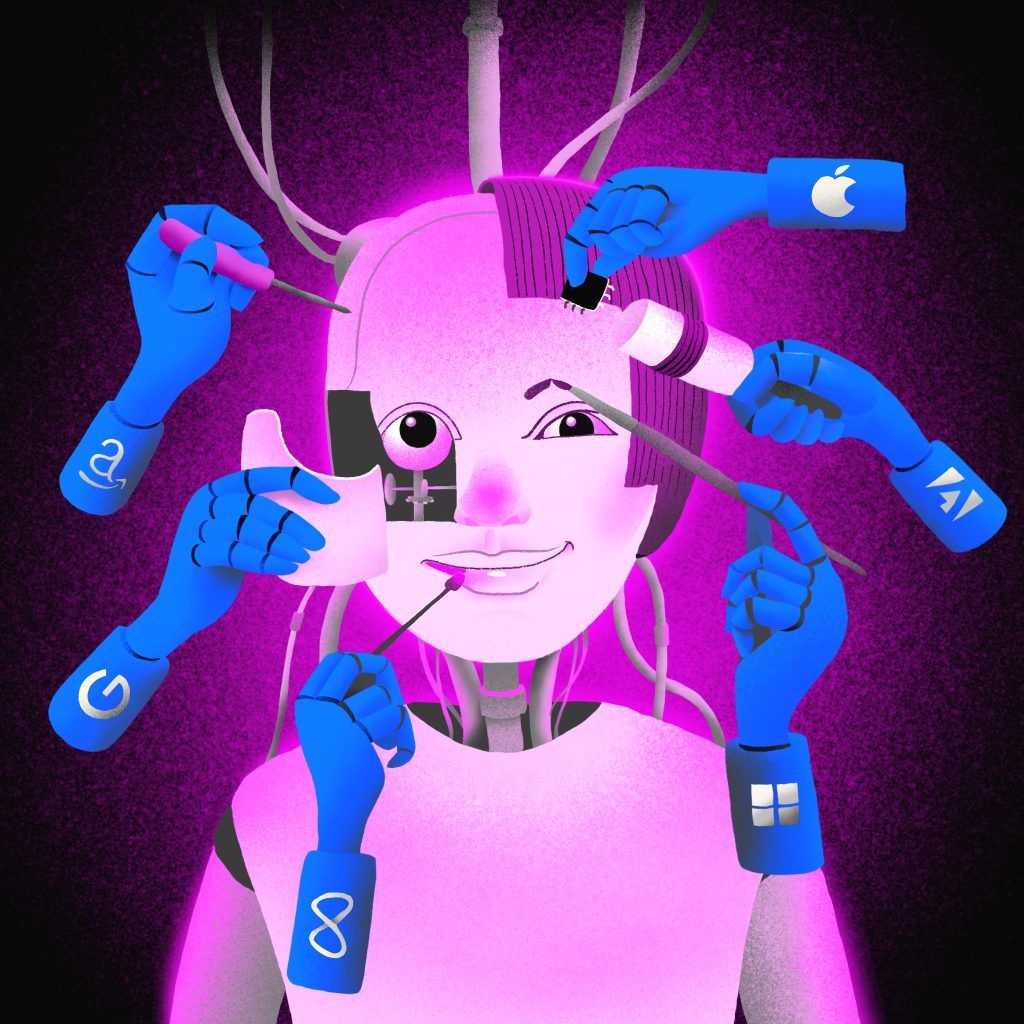
Then there is yet another uncomfortable aspect of the rise of AI. In the past, there was no possibility that the new machines and technologies could develop consciousness.
While this idea is currently debated by experts in the field of AI—some have expressed opinions that AI in its current state is mildly conscious or moving towards consciousness while others think that consciousness is a state that comes with being a living, flesh and blood organism, therefore can never be ‘developed’ by a program—it still raises the spectre of fear.
If these machines might one day engender consciousness in the way human beings experience consciousness, the question that naturally follows, is that if consciousness is what makes a human being human (or another living being conscious and itself, such as an elephant), if a machine or computer program is able to develop consciousness, what then distinguishes human beings from conscious machines?
And if these hypothetical conscious machines are also more intelligent than we are, what chance could we possibly stand if they then decide to eradicate us as a species, since we are their closest rival for the role of apex predator in the ecosystem? Now, we need to be aware here that we are making a leap from the idea of an entity possessing intelligence to the idea of an entity possessing consciousness. It is common to assume that when something possesses intelligence, it is also conscious. Philosophers and thinkers through human history have pondered the nature of consciousness and have come up with various definitions of consciousness. A common element in most definitions though, is the idea that consciousness is linked to the ability to create a goal for oneself and to determine what action to take at what time (the right time) in order to achieve that goal.
If we accept this definition of consciousness, then, for artificial intelligence to pose a viable threat to humanity as a species would depend on its ability to create a goal for itself and know how and when to take action to pursue that goal. That would mean that AI has consciousness.
But the question remains, will artificial intelligence ever be able to achieve consciousness? Is the fear we feel about the rise of AI for its implications on the future of our own species reasonably founded?
These questions, at this time, are still up for debate.
Illustrations for SpudnikLab by Quek Hong Shin.
